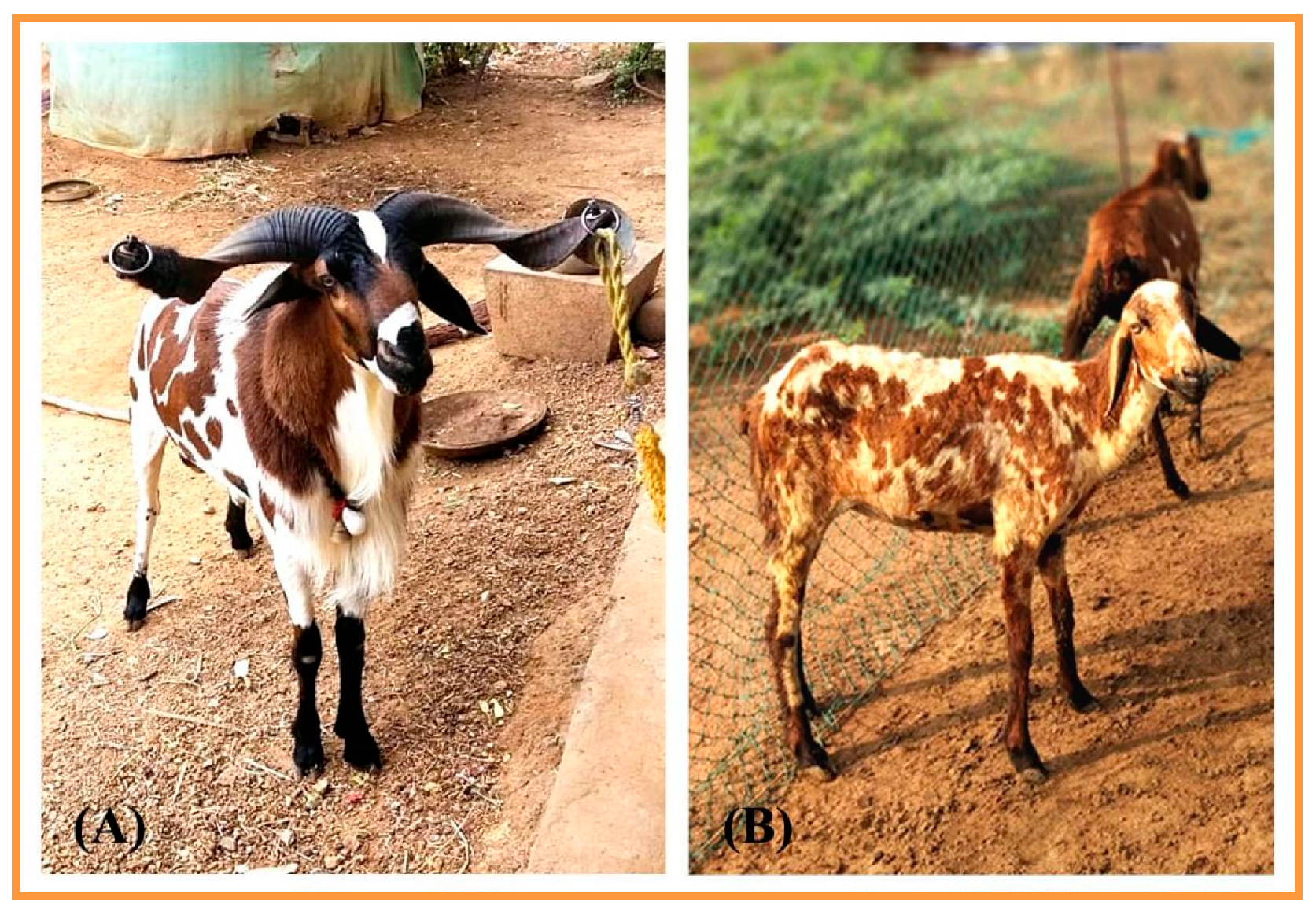Vembur Sheep
The Vembur sheep, known locally as ‘Pottu aadu’, is a unique indigenous breed found in Tamil Nadu. This breed is recognised for its distinctive coat pattern, which features white fur with reddish-brown patches. It plays important role in the livelihoods of local farmers, particularly in the Thoothukudi and Virudhunagar districts of Tamil Nadu. However, the proposed SIPCOT industrial project threatens its existence by encroaching on vital grazing lands.
Characteristics of Vembur Sheep
Vembur sheep are medium-sized animals with drooping ears and lean bodies. Their unique coat patterns set them apart from other breeds in India. They are hair sheep, requiring no shearing, and are well adapted to the local climate. The breed thrives on natural grazing, feeding on native grasses without the need for commercial fodder.
Cultural and Economic Significance
For generations, Vembur sheep have been integral to the local economy. Farmers rely on them for their livelihood, with the breed contributing to improved economic conditions and education for families. The market value of Vembur sheep has increased , with a pair selling for ₹18,000 to ₹20,000. This breed helps maintain cultural identity in the region.
Population Trends
The population of Vembur sheep was estimated at 31,000 in 1998, with an average flock size of around 38.6. Although the numbers have remained steady in recent years, conservationists express concern over the impact of industrial projects. The breed’s reproductive cycle is slow, with females typically producing one lamb per cycle, which hinders rapid population growth.
Threats from Industrial Projects
The SIPCOT industrial project plans to take over approximately 1,000 acres of grazing land. This land is crucial for the survival of the Vembur sheep. Farmers fear that without access to grazing grounds, they will be forced to abandon their livestock. The loss of this breed would erase part of the region’s agricultural heritage.
Conservation Efforts
While a government farm in Sattur is working to conserve the breed, it cannot replicate the extensive grazing lands that Vembur sheep require. Experts warn that the breed’s unique genetic traits and adaptability are irreplaceable. Immediate action is necessary to protect this breed from the threats posed by industrialisation.
Future Challenges
The younger generation’s declining interest in livestock farming poses an additional challenge to the survival of the Vembur sheep. Without immediate intervention, experts fear that the breed may quickly dwindle. The need for sustainable agricultural practices and conservation efforts is more critical than ever.
Month: Current Affairs - April, 2025
Category: Agriculture Current Affairs







